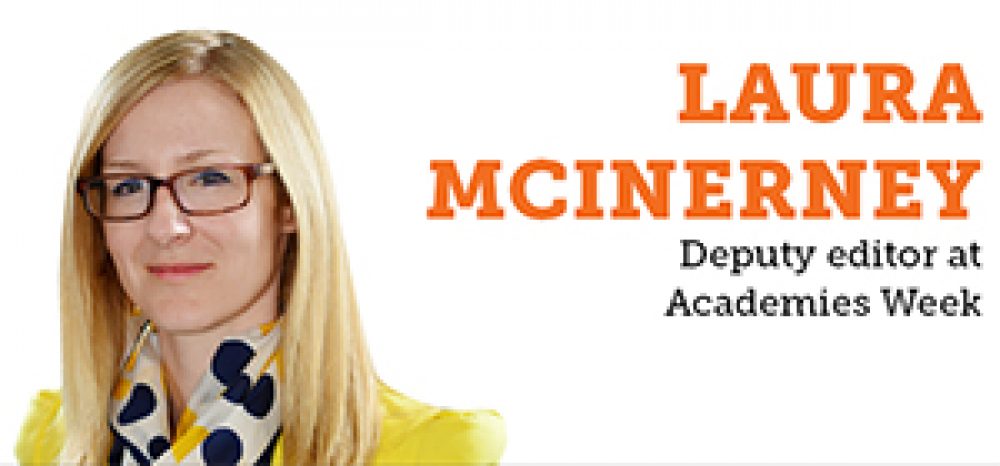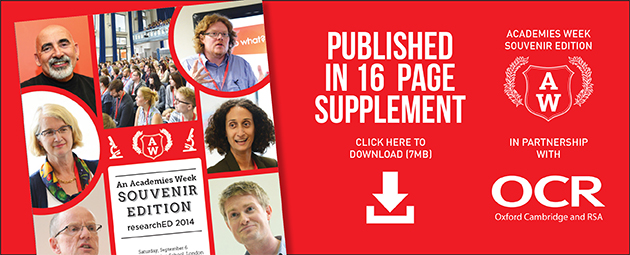Beware: most people make five common mistakes when they’re talking about research, writes Laura McInerney, deputy editor of Schools Week
The problem with being the sort of person who spends their Saturday in an education conference is that you eventually want to communicate what you learned with someone who doesn’t spend their weekends at education conferences. In fact, they might actively eschew any of your chat about “WedEd 3000” (that’s what it’s called, innit?) and they most certainly don’t want you ruining their mid-morning coffee break with chat about how wonderful it was.
Exciting people about research can be even tougher when the things that you are talking about sound quite dry: experiments, variables, participants. The scientists amongst you might be positively drooling, but to many others those terms are alienating.
Hence, in my seventh session talk, I tried to overcome people’s waning energies and give solutions to the “top five mistakes people make when writing or talking about research”. Avoid these errors, and research enthusiasm should be yours.
Mistake one sounds obvious – “forgetting to include ACTUAL research” – but is surprisingly common. It’s amazing how many people create INSETs effusing on the topic of research without ever showing any to the audience.
Imagine if someone spent 20 minutes of your time describing a cake, telling you its ingredients, describing its amazing properties – but never actually giving you a piece! Showing examples of research to people is a great way of modelling what can be done, and proving the power of it.
Mistake two: bashing people over the head with research. If someone hasn’t been convinced research is important from the first six pieces of research you have mentioned, giving a seventh, eighth or ninth is unlikely to help.
Giving one side of the story also makes people suspicious
They might even try and close off their mind to your arguments to save themselves from brain-battery. Giving one side of the story also makes people suspicious. Far better to carefully select a few research articles – ideally even a contradictory one – and give them to people so that they can contemplate for themselves.
Mistake three has my favourite solution. Mistake: Forget to tell stories. Solution: Explain research in narrative fashion: introduce characters, the investigators and the participants; explain what they did; describe how they measured outcomes.
A notable thing about Ben Goldacre’s paper on the use of research in education is that he uses only a few pieces of research but provides the full story of how they happened. Drawing people in with well-told examples will always be more memorable than bashing them over the head with 76 academic journal citations.
Mistake four is a technical one.
People are forever mixing up the word “significant” and “important”. In the English language, they mean roughly the same thing; in the research world, they are completely different. If something is “statistically significant” it means the difference in a measurement between two groups is unlikely to be down to chance.
If I assume that short people sit at the front of a talk, and tall people sit near the back, then if I took the average height of the people in the front and back rows I might find there is a big difference between the two. With the help of mathematical wizardry I can see how likely it is that the variation between the two averages would happen by chance.
If the difference between the two measures is so big as to be “unlikely” then we say there is a “significant” difference. It does not mean the difference between the two is necessarily important. Do I care that small people sit near the front and not the back? Maybe. Maybe not. But it does mean we shouldn’t use the words carelessly.
Hence, for the love of all that is educational – please, please, please – only use the word “significant” in a research talk or blog if you mean it mathematically. Otherwise, avoid it.
My final mistake is very simple. “Going on to long”. And the simple answer to that one, is: don’t.
Laura McInerney is now Editor of Schools Week (formerly Academies Week)








I’m kind of at a loss here. I don’t understand the connection to
education leadership